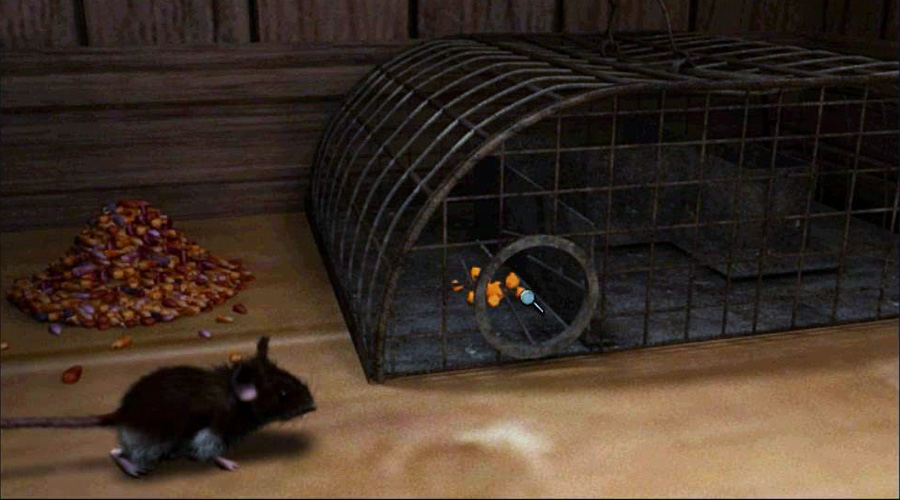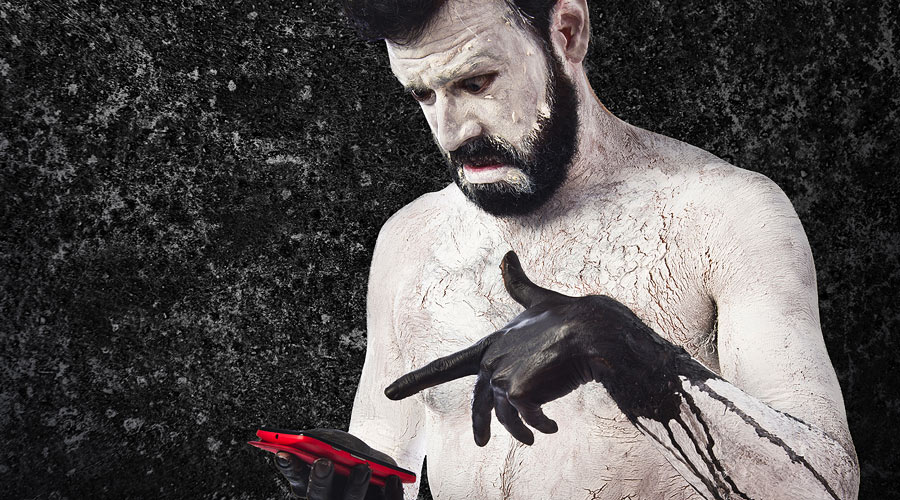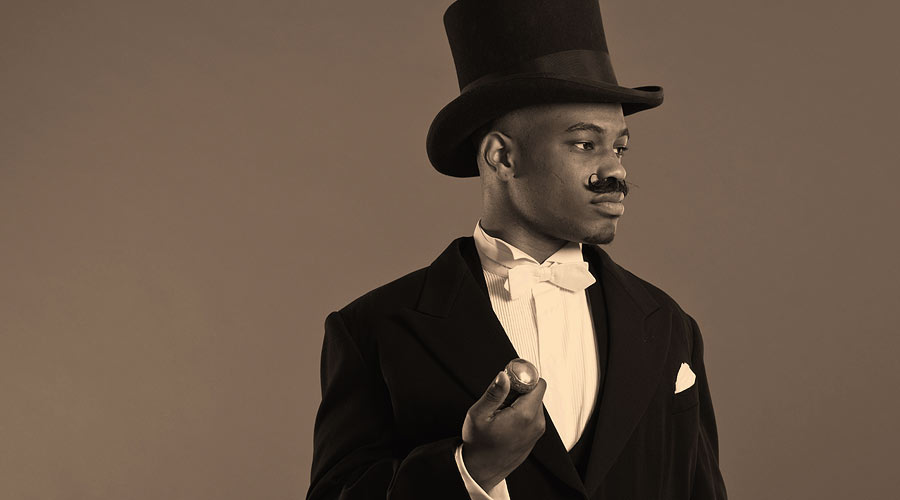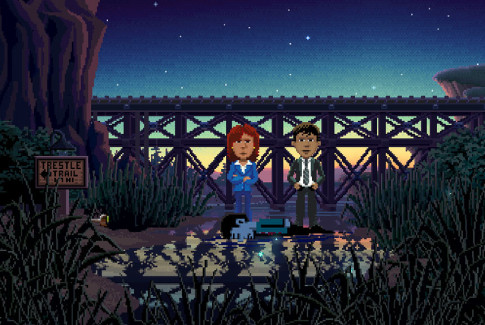
A few weeks ago, as I lay surrounded by half-filled boxes and half-filled water features in my suddenly sodden flat, I browsed Buzzfeed, searching for solace and sleep. And tips for decorating my new rental property, though that sounds far less dramatic.
What I found was a lifeline. That also sounds a bit dramatic – what I mean is they had an article about a game called Lifeline.
Now, I subscribe to the ‘great designers steal’ theory, or any theory that offers me an opportunity to humble-brag.
 The best designers bring their own jimmies. Adobe Stock
The best designers bring their own jimmies. Adobe Stock
It doesn’t mean I go about nicking things in the name of art. (Though what a fantastic defence that would be – it wasn’t an offence, it was a provocative real-art piece meant to highlight humanity’s fragile and futile attempts to place ownership against a wider universe in which we are, ultimately, meaningless. Viewing my work is twenty bucks a piece, officers…)
It’s more that I think it’s important to understand and dissect good design to figure out why it’s good. It’s important to see how other people tackle similar problems, to spark off ideas for what will work, to highlight what definitely won’t work. (Thank you Nancy Drew: Trail of the Twister. This is the only context in which those words aren’t meant sarcastically.)
 Mice puzzles. Why’d it have to be mice puzzles? And, more to the point, why’d it have to be the same mice puzzle fifty-thousand times? Her Interactive
Mice puzzles. Why’d it have to be mice puzzles? And, more to the point, why’d it have to be the same mice puzzle fifty-thousand times? Her Interactive
When I decided to make Cuthbert, I revisited a lot of adventure games I love. (For… research. Yes. Research…) I’m always on the look out for more games that might help me work out how to balance this big, complex story, like Life Is Strange, or figure out what plum doesn’t work, like The Raven.
Lifeline was described as a Choose-Your-Own-Adventure book – that was all I needed to know.
I wasn’t sure what to expect when I launched the app – probably because I hadn’t read beyond that Choose-Your-Own-Adventure line – but whatever I had in mind definitely wasn’t what came up on my screen – a comm. line to an astronaut, crash-landed on an unknown moon.
Not a real one (as far as I know), though the game is designed to feed through one short message at a time, and pause for long, real-time stretches while the astronaut, Taylor, follows the advice you’ve given them, explores the moon, and sleeps to add a sense of realism to the story. And tension when the comm. line suddenly drops at the worst possible moment, and it’s 2am, and you’re screaming and screaming at your phone for Taylor to tell you what’s happening.
(Taylor will not answer this scream; your partner, trying to sleep beside you, might, but they won’t be able to reassure you of Taylor’s safety. Just of your need to get up at 7am.)
 How can you sleep at a time like this, you insensitive jerk? Adobe Stock
How can you sleep at a time like this, you insensitive jerk? Adobe Stock
The game is incredibly immersive (as my partner Sam can attest to). A lot of it is to do with the fact that Taylor is talking to you. Only you have this comm. line to Taylor, only you can give them advice.
But it’s also a lot to do with Taylor and how funny and clever their messages are. While you never find out a lot about who Taylor is (with a very deliberate and quite welcome call not to gender them), the game is brimming with their personality. It lives on the jokes and the relationship you feel that you’re building when Taylor responds to what you’ve chosen to say or questions your decisions.
 3 Minute Games, LLC
3 Minute Games, LLC
The writing is incredible. Which is good, because it’s about 99.4% of the game. The mechanics boil down to Taylor telling you what’s happening and – in what does slightly break the immersion of the game (unless you can think of it as Google Auto-Reply gone mad – you being presented with two choices.
Now, I can see why the developer went down this route. The mechanics of coding something that has to take what a user has typed in, with all its possible synonyms and colloquial terms, and boil it down to the input the code needs to go forward is tough. I know. I spent twenty minutes of my life typing every possible alternative for the word ‘docks’ into Sherlock Holmes: The Awakened. Things do get missed. (Harbour, marina, quay, pier…)
But there is a definite disconnect in Taylor talking to you, you, the person reading this right now, scrolling on your phone with your sticky fingers, and you not getting to make your own decisions.
 ‘Wow, she really knows her audience.’ Adobe Stock
‘Wow, she really knows her audience.’ Adobe Stock
After their first night on the moon, Taylor told me they’d noticed their spit was green; all I could say back was, to paraphrase, ‘WHAT?! Are you going to DIE from radiation poisoning? I BET you’re going to die from radiation poisoning! You are so dead! Just so dead! From all that radiation poisoning!’ or else, ‘You are a disgusting human being, do not share these things with me’.
Being British, neither option appealed. I wouldn’t dream of worrying someone – someone who’s already stranded, alone, in a horrible situation – that we might have miscalculated the safety of sleeping near the wrecked ship engine – and I wouldn’t shut them down when they were angling to share their worries with me. Me, the only person they are able to communicate with in the world.
 Be rude? But that’s… that’s impossible. Adobe Stock
Be rude? But that’s… that’s impossible. Adobe Stock
But I had to pick an option, or not progress at all.
It might have been less of a jolt back to reality if I’d been playing as a character – some personality different from my own whose first instinct would be you’re-dying-you’re-dying-so-hard – rather than myself, when I would choose some very different options. More choices, or even a Telltale-esque ability to not reply, which in situations like this one should say a lot to the character, would have helped.
But, playing it through, it’s clear to see 3 Minute Games wanted to tell a tightly-wound narrative, and the more options you put in, the harder that becomes. I can definitely understand that. And most of the time, I was just eager to press on, to find out what would happen next, to see if Taylor would be all right.
(They were. I’m an amazing person to contact next time you’re stranded on an alien moon, guys.)
Still, I was interested to see another game that marketed itself as a Choose-Your-Own-Adventure do things so differently to how I’m doing them: you as a player, talking directly to the character on your iPhone, in a time-realistic fashion.
 ‘How does she know?’ Adobe Stock
‘How does she know?’ Adobe Stock
It’s worlds away from playing as a fixed personality who might choose to say any number of things, depending on a mood and on a tactical angle that’s left up to player, one step removed from the game, to decide.
It works for Lifeline. But as much as I enjoyed playing it, it just reinforced that there’s nothing out there like what I’m trying to make.
And I better hurry my butt up and make it.



